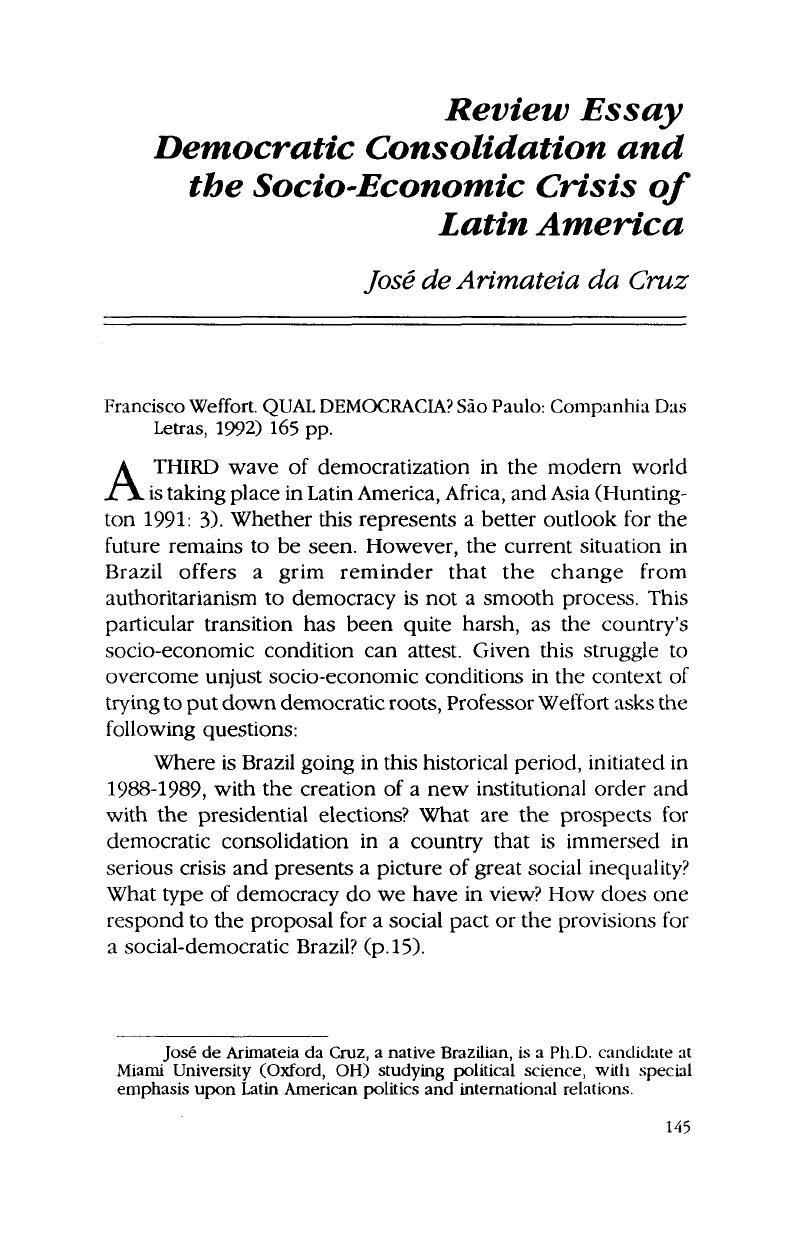Crossref Citations
This article has been cited by the following publications. This list is generated based on data provided by Crossref.
da Cruz, José de Arimateia
1994.
José Alvaro Moises and J. A. Guilhon Albuquerque (eds). Dilemas da Consolidação da Democracia.
Rio de Janeiro, Brazil: Paz e Terra, 1989. 269 pp..
Journal of Interamerican Studies and World Affairs,
Vol. 35,
Issue. 4,
p.
190.
da Cruz, José de Arimateia
1994.
Maria D'Alva G. Kinzo (ed). Brazil: The Challenges of the 1990s.
New York, NY: Institute of Latin American Studies, University of London and British Academic Press, 1993. 214 pp..
Journal of Interamerican Studies and World Affairs,
Vol. 36,
Issue. 4,
p.
193.



